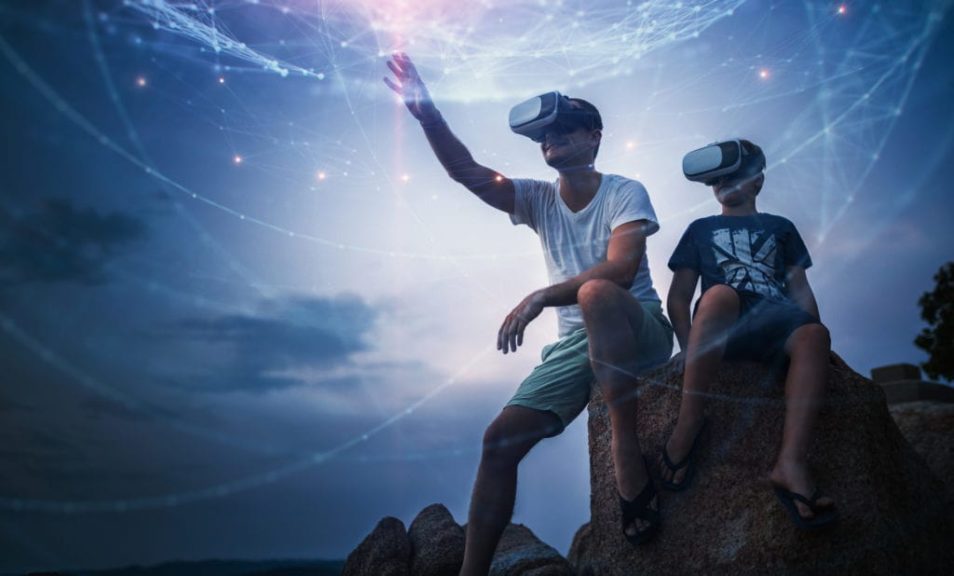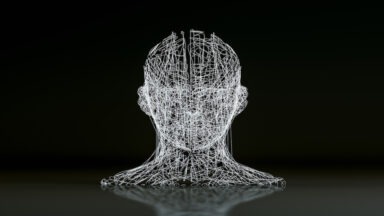Paradigm Shifts in Global Economies

Imminent Change
Does it feel like we are on the verge or in the process of drastic changes – particularly on a global scale? Are we headed toward a more unified global economy or are isolated local economies the path of the future?
The confluence of global political disruptions, technological advancements and economic flux in our recent history suggests that we are moving toward new paradigms in global and local societies.
We have seen the effects of globalization, and most often the negative implications of it, as a product of corporate greed. But what would happen if a globally concerted effort was made with humanity’s benefit in mind?

Artificial Intelligence and Universal Basic Income
With computing power increasing at an exponential rate, the prospect of artificial intelligence reaching a level of taking over low-skill jobs is not very far off. In many ways, we have already experienced its initial push with automated services and current development of autonomous vehicles. An apparent result of this would be mass unemployment and subsequently, a large segment of the workforce that might be unemployable.
Elon Musk, amongst others, believes that to alleviate this problem it will be necessary for governments to pay citizens a universal basic income or UBI. Musk believes a complete automation of transportation will happen within the next 20 years. A drone taxi service is already being tested in Dubai. With driving, in its different forms, being one of the largest fields of employment, a significant portion of the workforce would be out of work. But would they have to find another job?
There have been recent attempts and experiments with the introduction of a UBI. In Finland this year, an experimental program was passed giving a group of randomly selected citizens, currently receiving welfare, a basic income of 560 euros per month. A tech start-up in California is giving a UBI to some residents of Oakland, ostensibly for philanthropic purposes, but also to research its effects. The Netherlands is also trying out a UBI experiment of its own.
Shattering Historical Paradigms
Scientists, historians and archeologists are actively engaged in answering the big questions about human origins, our relationship to each other and the world around us. But advances in technology and scientific techniques are uncovering paradigm shattering discoveries which are forcing a crisis in their way of thinking.
What to do in Your Spare Time?
What would you do if you didn’t have to worry about earning enough money to survive? Aside from a significant decrease in stress and anxiety, a UBI would allow people more time to focus on art, music, hobbies and pastimes – things that contribute to happiness and a better quality of life.
But one might argue that people’s jobs and careers give them a sense of purpose and without them they might struggle to find meaning in their life. What are the alternatives?
A consequence of technological advancement that we are becoming more and more familiar with is the development of virtual reality. We have already seen the effects that VR has had on society in different ways than one might associate with digital VR. The Pokémon Go fad, that had people searching and battling for imaginary creatures suffused with actual geographic locations, is one instance.
As Yuval Hararai notes, there are many orthodox Jews in Israel who do not work (although their wives do) and instead spend their time devoted to their religion. He notes that religion is somewhat of an abstract type of VR. Rules are abided by that are not necessary for survival, imaginary points are awarded for performing pious rituals, or subtracted for lack thereof. These orthodox men live impoverished lives, but report some of the highest levels of happiness.
Will VR, in its many forms, become more pervasive in our everyday lives?

The Cashless Society
How would you feel if the government asked you to turn in all of your $20 and $100 bills tomorrow?
Although it may be difficult to fathom, a society that eliminates cash is potentially forthcoming and is already partially implemented or on the verge of induction in some countries. More than 1/3 of the populations of the U.S. and Europe say that they would be willing to move to a cashless society.
Proponents say that the benefits of digital currency and banking can reduce crime, eliminate counterfeit money and create new ways for those without credit to establish it. Of course on the other hand there is the problem of identity theft or digital trails for Big Brother to trace, but which is the bigger problem?
The most pertinent example, as of late, has been the system put into place by Indian Prime Minister Narendra Modi. Modi removed 86 percent of India’s currency in an attempt to stop corruption, tax evasion and the black market. Another intended result of the program was to register a large portion of the Indian population, particularly those born in rural areas, that had no identification. The Indian government created a system, called Aadhar, to give identification to those without it through a retinal scan and fingerprints. Once this system was in place, a follow-up system was created to give its citizens a bank account where transactions could be processed for free and money could be sent instantaneously.
In the U.S., there was a noticeable drop in crime that was correlated with a move away from cash, when unemployment benefits were delivered in the form of a debit card rather than a paper check, that most recipients without a bank account would cash. It appeared that the less cash that was on the street led to a drop in crime.
We’re decreasingly using cash in our day to day transactions when plastic is often preferred or the only accepted form of payment. We don’t even need our physical credit cards to pay for items at the grocery store, when a simple scan from our phone will suffice. Is cash beneficial or a hinderance to you? Could you live in a society that eliminated paper currency?

What is the Cabal and How Dark Forces Control the Masses

If there are dark forces, or a cabal, that control world economies (and minds), as well as secret factions within religious organizations, then a lot of strange things begin to make sense.
Many believe some covert but influential organization is responsible for globally impactful circumstances or events. And the truth is that people conspire — they gather in small groups and work together to take control. Such meetings have been going on since the beginning of our species. But when the actions of secret societies become sinister and harmful to others, then perhaps it’s time for the populace to wake up.
Sometimes called the Illuminati, the New World Order or even the Global Elite, “cabal” refers to secret factions working inside our governments with an agenda for world domination. To become aware of their entrainment, we must empower ourselves with an awareness free from their crafted agendas.
As conscious beings who can see what is happening in the world around us, we are in place to call out and disempower their secrecy. And the best news buttercup, they don’t win! There is nothing to fear.
The truth will be our greatest boon. Cosmic order will prevail and we will achieve the ascension that has been 25,000 years in the making.
The Cabal and Secret Societies
Secrecy needs darkness to survive. We may have heard the name, but what is the Cabal? If we’re unaware of their existence, we are powerless against their manipulation.
Secret societies are nothing new. From the Illuminati to the Freemasons, they have thrived behind closed doors, teaching countless generations’ beliefs and knowledge. Secrecy and power are their currency. Like the Hydra, they have many heads, many names, all with the same belief that power and domination is the role of the select few.
The Bilderberg Group
More than a half-century ago, in 1954, Daniel Estulin wrote, “the most powerful men in the world met for the first time in Oosterbeek, Netherlands,” to debate the future of the world. From that day forward, right up to the present, they have been meeting every year in secret. They called themselves the Bilderberg Group, which has a membership of world-power elites, mostly from America, Canada, and Western Europe.
These are mostly high-profile individuals who are influential in an array of areas ranging from politics to entertainment, and from industry to banking. Well represented are top figures from the Council on Foreign Relations (CFR), IMF, World Bank, Trilateral Commission, EU, and powerful central bankers from the Federal Reserve, the ECB, and Bank of England.
The official Bilderberg website notes that discussions are held under the Chatham House Rule. This refers to the fact that participants can use any information they receive during the meeting, but are sworn not to reveal its source. The last meeting took place in the spring of 2019 at the Hotel Montreux Palace in the Swiss town of Montreux.
The Bilderberg Group’s highly secretive meetings, without a fixed agenda, according to The Local, a Stockholm-based news outlet, act as “regular fodder for conspiracy theorists who believe its participants act as a secret world government…However, organizers argue the private nature of the event gives attendees the chance to hold informal discussions about major issues.”




































